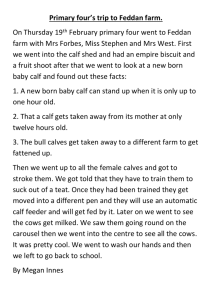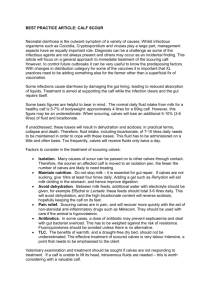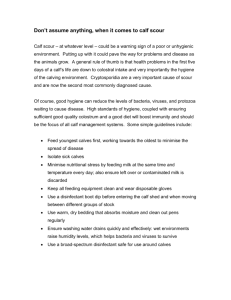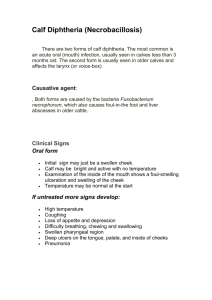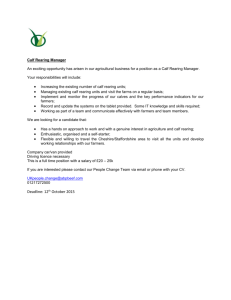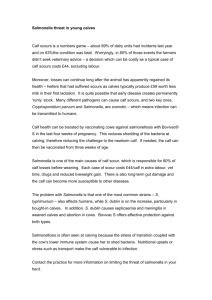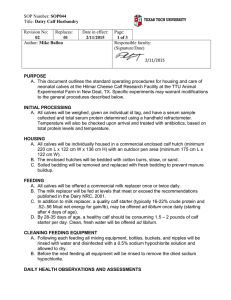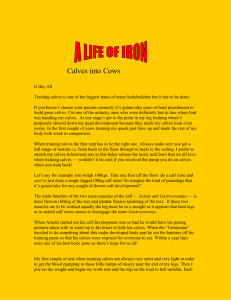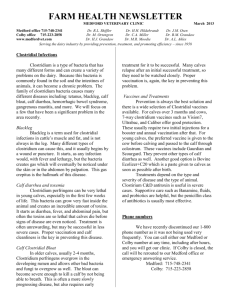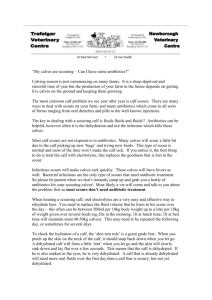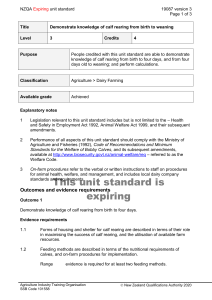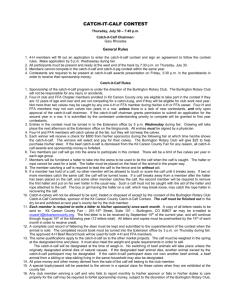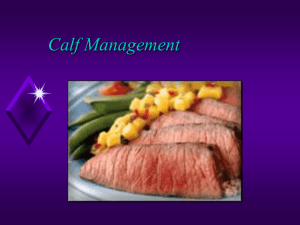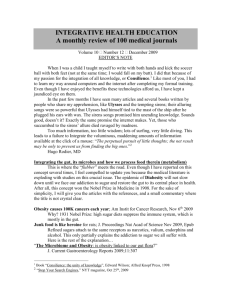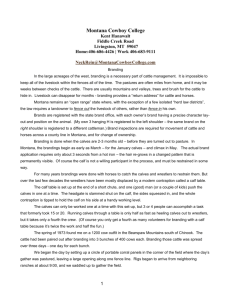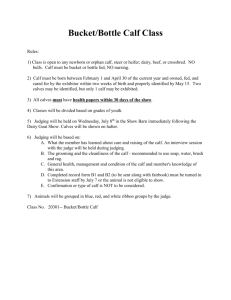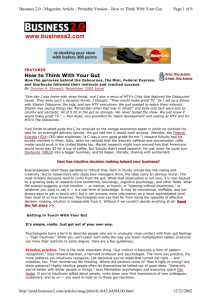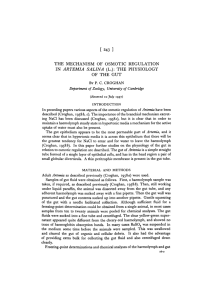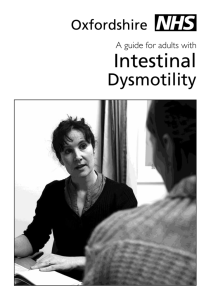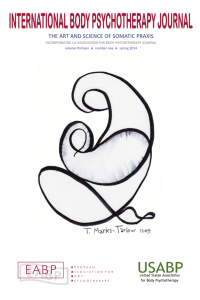A belly bloated and calf kicking painfully at their side is not a
advertisement
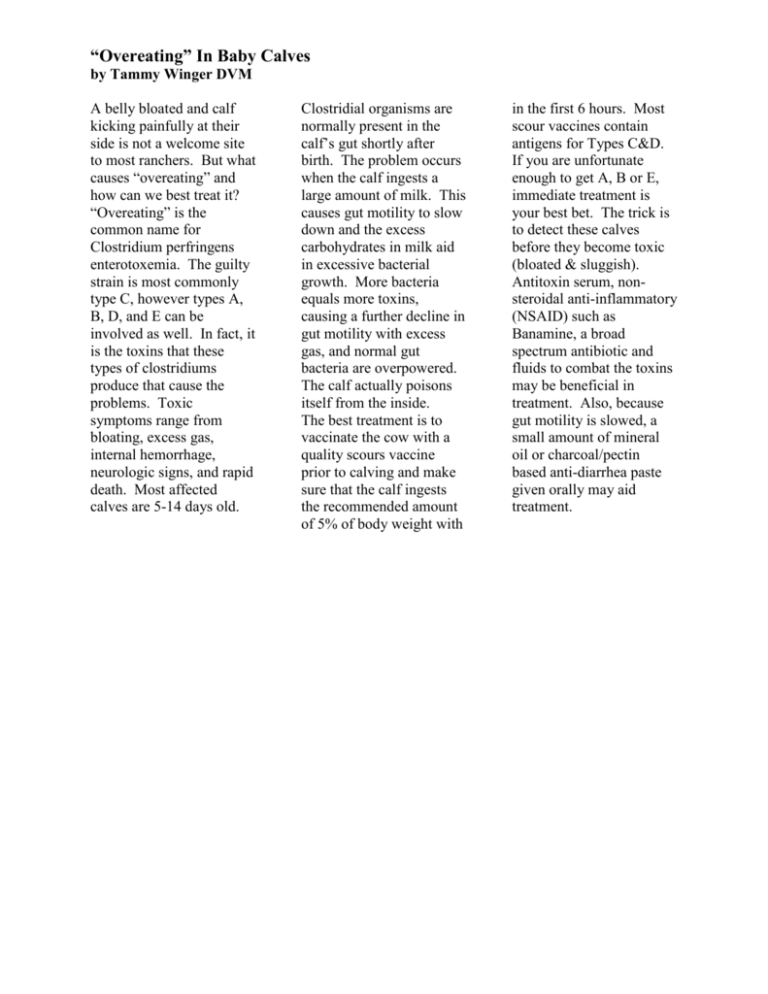
“Overeating” In Baby Calves by Tammy Winger DVM A belly bloated and calf kicking painfully at their side is not a welcome site to most ranchers. But what causes “overeating” and how can we best treat it? “Overeating” is the common name for Clostridium perfringens enterotoxemia. The guilty strain is most commonly type C, however types A, B, D, and E can be involved as well. In fact, it is the toxins that these types of clostridiums produce that cause the problems. Toxic symptoms range from bloating, excess gas, internal hemorrhage, neurologic signs, and rapid death. Most affected calves are 5-14 days old. Clostridial organisms are normally present in the calf’s gut shortly after birth. The problem occurs when the calf ingests a large amount of milk. This causes gut motility to slow down and the excess carbohydrates in milk aid in excessive bacterial growth. More bacteria equals more toxins, causing a further decline in gut motility with excess gas, and normal gut bacteria are overpowered. The calf actually poisons itself from the inside. The best treatment is to vaccinate the cow with a quality scours vaccine prior to calving and make sure that the calf ingests the recommended amount of 5% of body weight with in the first 6 hours. Most scour vaccines contain antigens for Types C&D. If you are unfortunate enough to get A, B or E, immediate treatment is your best bet. The trick is to detect these calves before they become toxic (bloated & sluggish). Antitoxin serum, nonsteroidal anti-inflammatory (NSAID) such as Banamine, a broad spectrum antibiotic and fluids to combat the toxins may be beneficial in treatment. Also, because gut motility is slowed, a small amount of mineral oil or charcoal/pectin based anti-diarrhea paste given orally may aid treatment.
